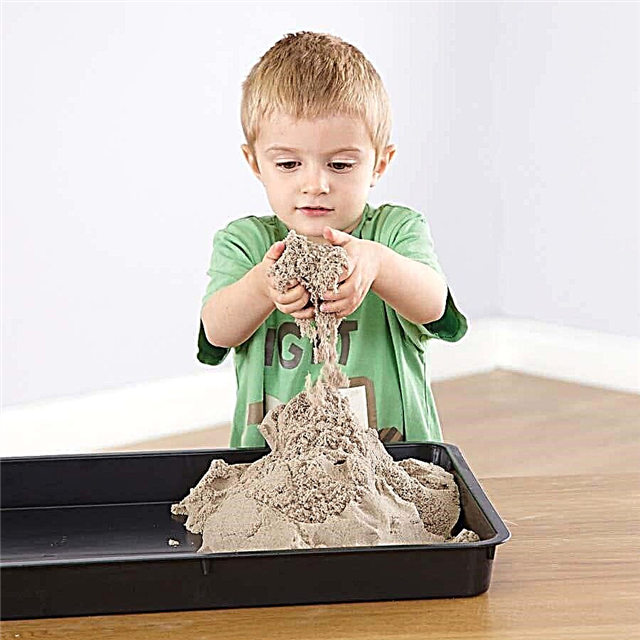Now people already live in a frantic rhythm - they don't get enough sleep, they often find themselves in stressful situations. It is not surprising that the diagnosis of anxiety disorder is becoming more common. Parents, of course, want their children to be healthy and happy, strive to protect them from negative factors. Only sometimes they themselves do not notice how they make mistakes in upbringing, because of which the child becomes anxious.

In this article, you will learn why, with good intentions, it is easy to harm your child. So, 6 parenting mistakes that can cause a child to develop anxiety disorder.
1. Excessive care
At school, the child has so many problems - often unfair attitude of teachers, nagging from older children, quarrels with classmates. Hearing about this, parents begin to worry and show their emotions. Worrying about your child is absolutely normal. But it's probably not worth it to violently demonstrate your experiences. Children are sensitive to the emotions of their parents, take them to heart, and as a result, they become even more anxious about the fact that their loved ones are worried.

Parents need to be strong for the child to follow their example. If he sees that adults react to problems with excitement, he will grow up with the confidence that this is normal. Therefore, keep your feelings and anxiety under control while dealing with the problems of your child. The child needs to feel the support of the parents, to understand that they will always listen to him carefully, encourage him, and help him with practical advice.
2. Striving to protect the child from all troubles
Parents consider it their duty to protect their children. This is a noble impulse, but it often causes an increase in anxiety in a child.

After learning about the problems at school, the first thing you want to do is go and deal with the offenders. It is hardly worth giving in to this impulse, because in this case the child will receive 2 signals: the first - he cannot be frank with his parents, the second - the closest people think that he is not able to deal with his problems. Therefore, parents need to convince their child that they will protect him only when he himself wants it. Better help your child find a solution to his problem that he will bring to life.... This is the only way you will be able to educate an independent person who can cope with life's difficulties.
3. Compensation for weaknesses
All parents want their child to study well, receive praise from teachers and, in general, be everyone's favorite. Therefore, they immediately come to the rescue when something does not work out for the child. If a child fails an algebra test, a tutor is hired for him; if there is a clash with a school bully, he is enrolled in aikido. It is quite understandable and logical that parents want to improve the weaknesses of their children so that they grow up to be successful people. You need to realize the following: by constantly helping your child to cope with what he cannot do, you focus on the negative.
People usually gain confidence not by compensating for their weaknesses, but by focusing on their strengths. The secret to happiness is simple: you need to do what you do well and not take your failure to heart. Instead of hyping up the tragedy of one bad grade and hiring a tutor, it is better to do with your child what he is successful in. So he will again believe in himself and in his abilities.
By focusing on your child's strengths, you will grow him to be a confident person.

4. Increased focus on strengths
Yes, we just said that you need to focus on strength (and this is true), and now we put it out as the next item. It is really necessary to focus on the strengths of the child, but here it is important not to overdo it. It is a difficult task not to cross the line, after which overestimated expectations appear. Boasting to their friends that their son is a future Olympic champion, and their daughter is an excellent student and the best student, parents believe that they are encouraging their children and helping them to achieve their goals. In fact, such speeches put a lot of pressure on the child's psyche. Praise your children when they are doing well, but don't demand more of them because of this success. High expectations make a joyful and positive environment difficult and unsettling. After all, the child wants his parents to be proud of him, and is afraid to upset them.
5. Striving to educate a person with high moral values
Perhaps everyone wants their children to grow up to be highly moral people. The problem is that each age has its own values. Teenagers are protesting at all, they question everything. Therefore, it is not entirely correct to punish a child for not following your rules.

It happens that children commit acts that they themselves later regret. More than once, teenagers have committed suicide for reasons that should never have led to the loss of life. Sometimes children make the wrong decisions - from posting naked photos to watching pornography - and the thought of a family member finding out about their actions looks like a punishment worse than death. Reassure your child that while moral values are important, you understand how many temptations are around. Otherwise, he will not be able to approach you and tell about his mistakes, because he will be afraid of condemnation and censure.
6. Silence your own problems
Parents do not want to burden their children with their problems. Financial difficulties, quarrels with your husband, troubles at work - all these are the harsh realities of the adult world. Why dump this negativity on a child who is not to blame for anything? It seems to parents that by not telling their child about adult problems, they protect his peace of mind. Only children are very sensitive, so they understand everything even without words. They may not know the details, but they see the puzzled faces of their parents, they feel the tension in the relationship. A child needs just the feeling that something is wrong - and he already begins to worry.
Does this mean that you need to shoulder all your problems on weak children's shoulders? Of course not. Still, a little honesty about your experiences doesn't hurt. The main thing - don't just share your problems with your child, but also explain how you are going to deal with them... In this way, you will simulate methods of dealing with anxiety in the child's mind.
“Anxiety disorders in children,” says psychologist Anna Budko:



